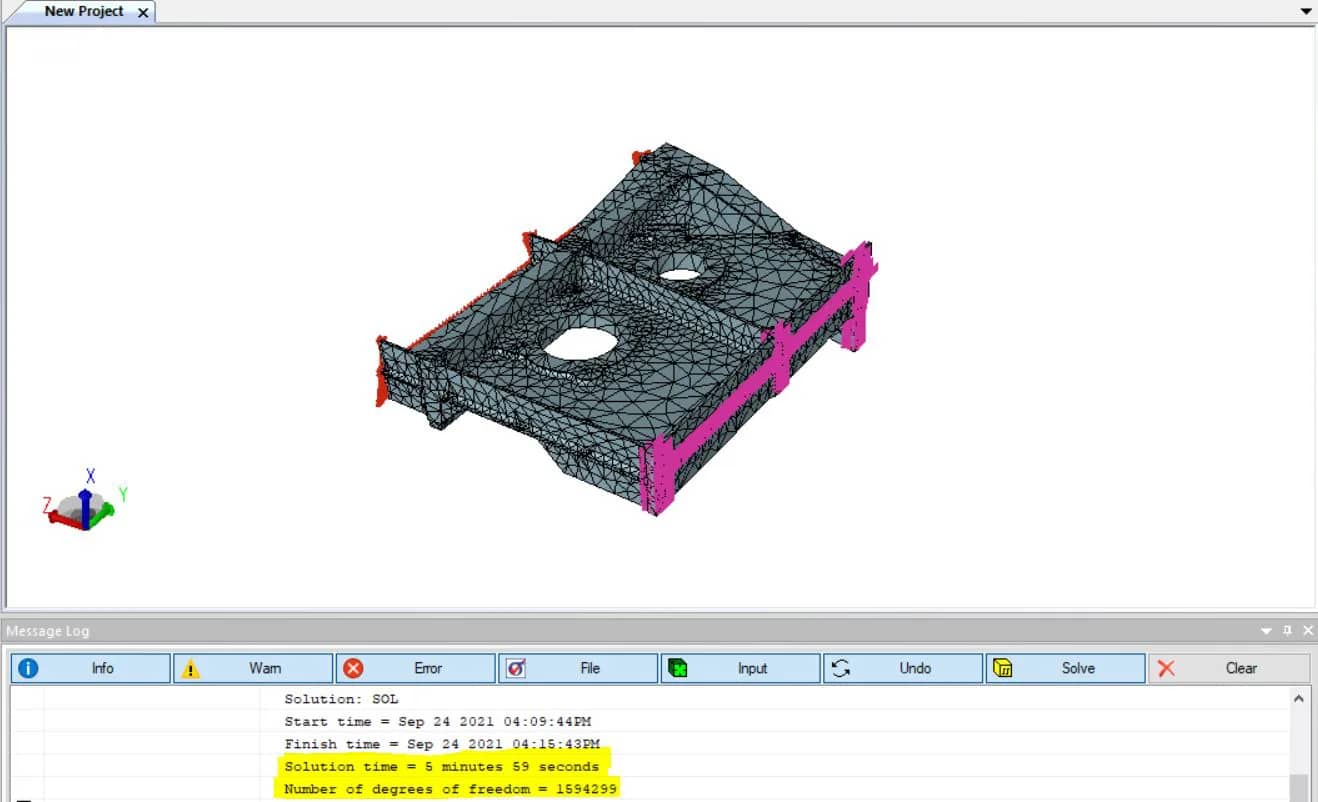System Requirements
Recommended System Configuration
The following system configuration is recommended for running StressCheck Professional on Windows 10 OS:
- Intel Xeon CPU @ 2.5 GHz or greater
- 32 GB Random Access Memory (RAM)
- 1 TB SSD scratch disk with SAS disk controller
- NVIDIA/AMD graphics card with 4 GB RAM or greater
- Windows 10 Professional
- Microsoft .NET 4.5 Framework
- Adobe Reader (for offline documentation)
Minimum System Configuration
The following minimum system configuration is required to run StressCheck Professional on Windows 10 OS:
- 8 GB Random Access Memory (RAM)
- 20 GB free disk storage
- OpenGL-compliant video card
Note: Operational efficiency of StressCheck is dependent upon the amount of RAM, the number of processor cores, disk speed and available scratch disk space. The more memory and disk space that you provide, the better StressCheck will perform.
Benchmark Examples
For example, the below benchmark of 22770 3D tetrahedra representing a rib section under torsion was solved at p=5 (~1.6M DOF, 6 minutes) in StressCheck v11 Update 1 and required 13.2 GB of disk space and approximately 2 GB of RAM during solution processing:

And this benchmark of 9532 3D elements (9160 tetrahedra, 212 pentahedra and 160 hexahedra) of a longeron section under bearing/bypass loading was solved at p=6 (~1.1M DOF, 7 minutes) in StressCheck v11 Update 1 and required 17 GB of disk space and approximately 3.3 GB of RAM during solution processing:
Looking for Resources?
Recent News & Events
Quick Links
Testimonials
-
“Aerospace materials scientists and structural engineers now have a new state-of-the-art software product called StressCheck, which provides efficient and reliable analysis tools for composite bonded aircraft structures. A composites research team from the aeronautics industry, known as the Composites Affordability Initiative (CAI), has just completed an extensive study of current capabilities in the area of failure analysis tools for composite bonded joints. This study led the CAI team to unanimously choose StressCheck as the software tool to replace as well as radically improve existing industry standard software currently used to size bonded joints.”
Air Force Research Laboratory (AFRL)
 Serving the Numerical Simulation community since 1989
Serving the Numerical Simulation community since 1989 






